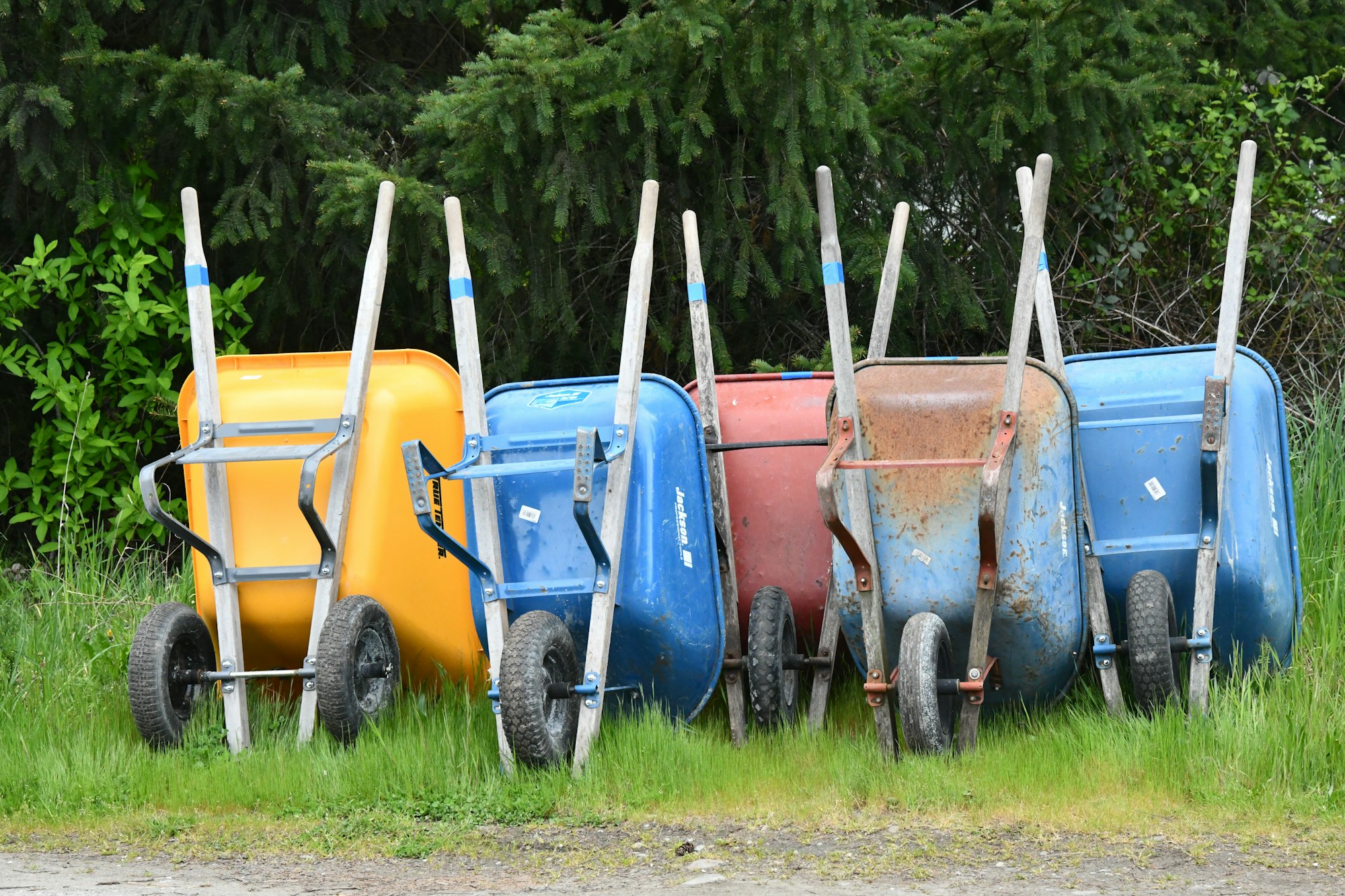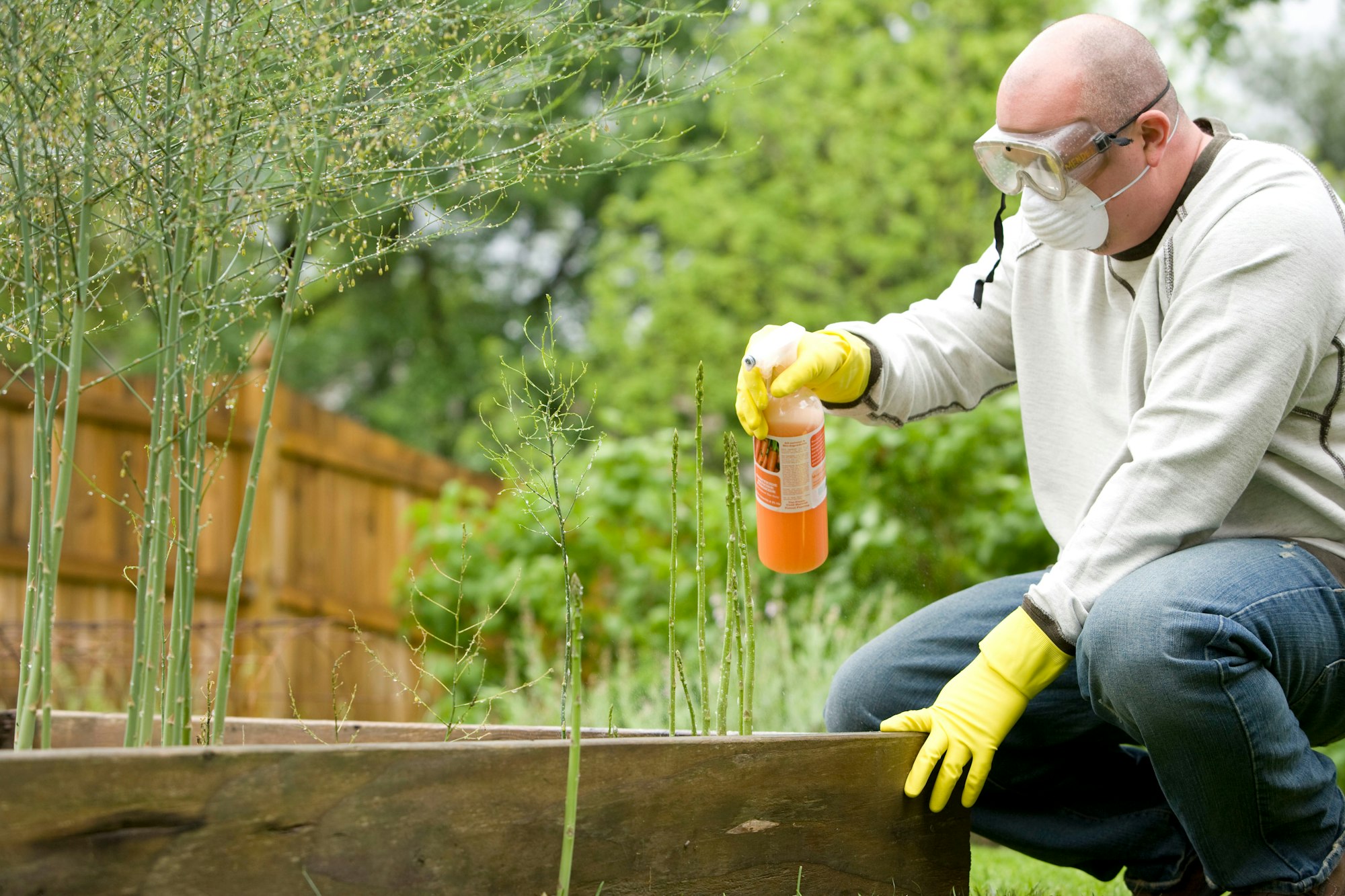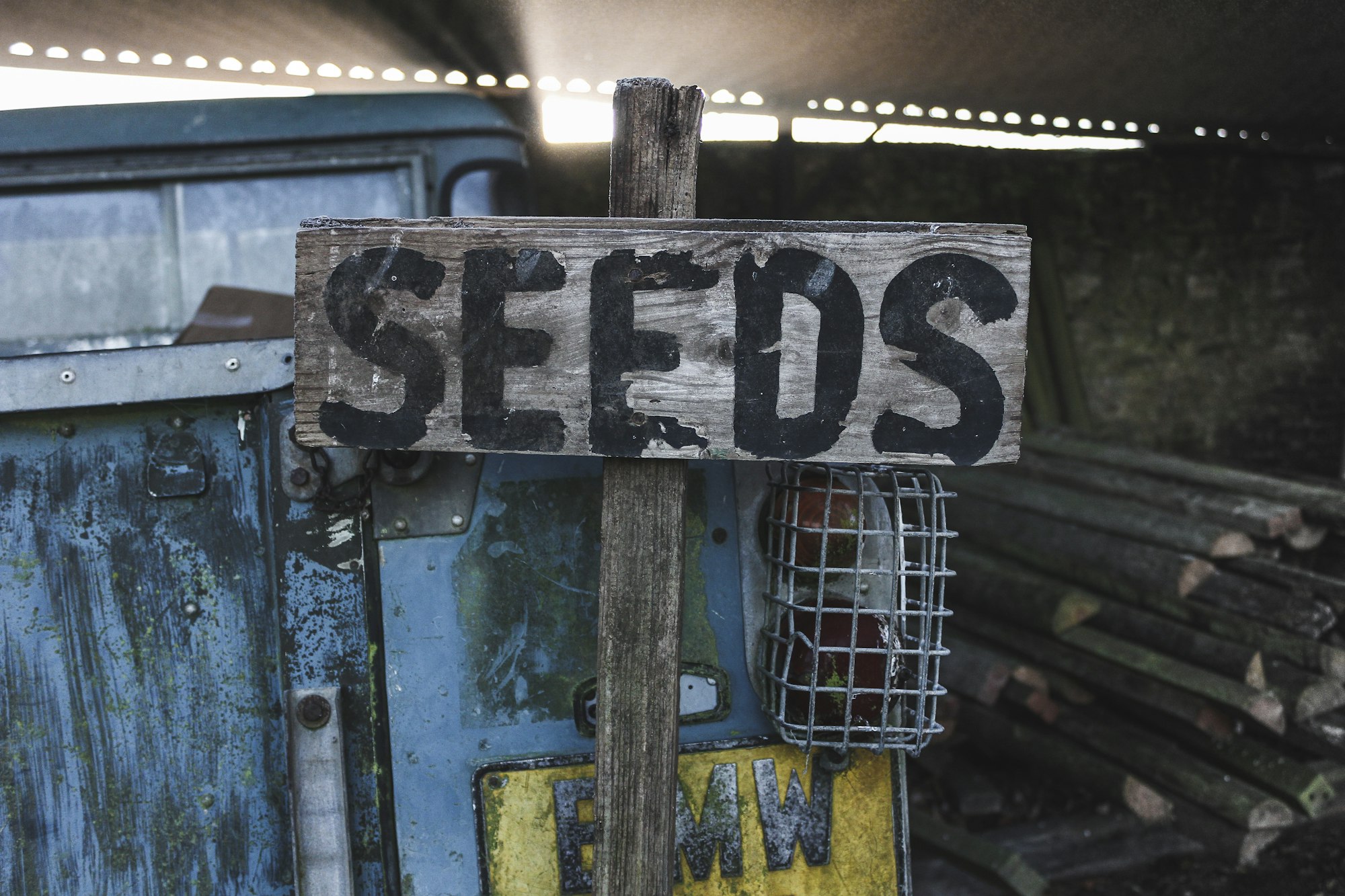Old geezers and wheelbarrows. This is what people think about allotment gardeners. That and the idea that it supposedly saves you a bit of money.
The fact is, supermarkets are cheaper, supplied and stocked with big quantities of veg’ at a fraction of the cost. There's no getting away from this. The real savings made by keeping an allotment are hard to gauge. Perhaps it can be measured against the cost of gym membership, store bought rhubarb, fancy supermarket on-the-vine cherry tomatoes? Perhaps the cost can sneak up on you.
“I’m not here to save money” - most allotment gardeners admit to that.
Over the last few years, I’ve definetely spent more on my allotment than I’ve saved. As the seasons have gone by, I’ve managed to reduce my costs a little, and - after the initial expense of getting set up - I’ve continued to reduce the running costs, mostly by accepting freebies from fellow plot-holders. As an allotment gardener, that seems to be the primary benefit - the freebies.

Old wheelbarrows, water butts, sweetpeas, courgettes - we all share spare bits-and-pieces amongst each other. As a newbie, you’ll be given more than you know what to do with.
Eventually, however, you’ll want to buy new stuff - or seed catalogues will get you hooked onto growing more demanding, hungry plants. When I was a new plot holder, I started with easy things like potatoes and courgettes, but after a while this got boring. - The thing about gardening is, it’s a hobby, so it’s fun to grow fancy plants and try out new things. This is where the expense comes in.
It’s worth knowing that ‘use by’ dates hugely under-estimate things - seeds 6,7, even 8 years out of date still germinate. The germination rate won’t be 100%, but this isn’t a huge issue because most packets contain 100s of seeds. - I didn’t realise this until I ended up with way too many seed packets. Still, though, I buy seeds.
What’s more, the moment I started saving seed, I ended up collecting enough for years in the entire allotment community! - some of which will be shared out, most of which won’t ever be used - there are literally thousands.
Seed saving is addictive.
When you start to save seed, you end up reading about all sorts of interesting things. You learn about F1 hybrids that can’t be used for saved seed. Open-pollinated seeds - which can be saved - but can’t be sold for profit without a special ‘seed licence’. If you start thinking of the potential financial value of seed saving - something that is surprisingly regulated, something that has even led to violence, bankruptcy, and international courts of law - you end up reading tales of woe and corruption.
The Bayer Crop Science (formerly, Monsanto) Company is an example of this. What they appear to be are evil gardeners. What they want is world domination through seed ownership. What they do is sue the pants off anybody who saves their seed.

I never even tried to understand the legal side of home gardening - why would I? Why would it even occur to me? Besides, the Real Seed Company has explained it all in everyday terms - here. All I know is, it’s a complicated process - covered by magazines and newspapers from Vanity Fair to The Financial Times, who all spin a good yarn. What I do understand is, saving heritage seeds gives me access to vegetables that you can only buy if you shop in posh retail shops. In other words, it doesn’t save me money, but does make prohibitively pricey things affordable. It’s also a lot of fun.
For a fairly new allotment holder like me, though, buying seeds that require more skill than I might have, it’s easy to get sucked into buying plants I won’t grow, or that can’t be saved. Pretty packaging sucks me in. 2-4-1 offers. Maybe I’ll end up buying way more seeds than I could ever grow? I’ve heard that lots of gardeners have this problem. We buy things we don’t really want, just because. A lot of us aren’t very good at budgeting, because, really, none of us started gardening to save money. I think this is how big seed companies suck us in, flooding the market with thousands of seeds, taking advantage of us overly-enthusiastic gardeners.
